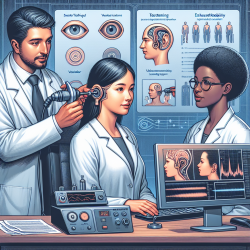Individualized Education Programs (IEPs) are essential in ensuring that students with special needs receive the tailored support they require to succeed in school. For Speech Language Pathologists (SLPs) working in schools, effective IEP planning and meetings are critical components of this process. However, with the advent of online therapy services, the landscape of IEP planning and execution has significantly evolved, offering new opportunities and challenges.
IEP planning is a meticulous process that involves multiple stakeholders, including educators, parents, and specialists. The goal is to create a comprehensive plan that addresses the unique needs of each student. With the integration of online therapy services, SLPs can leverage technology to enhance the effectiveness of IEPs in several ways:
- Accessibility: Online therapy services break down geographical barriers, allowing SLPs to provide consistent and timely support to students regardless of their location. This is particularly beneficial for schools in rural or underserved areas.
- Flexibility: Virtual sessions can be scheduled at times that are most convenient for students, parents, and educators, thereby reducing the logistical challenges often associated with in-person meetings.
- Comprehensive Data Collection: Online platforms often come equipped with tools for tracking student progress, generating reports, and maintaining records. This data can be invaluable during IEP meetings, providing concrete evidence of a student's development and areas that require further attention.
- Collaboration: Online therapy services facilitate real-time collaboration among all IEP team members. Features such as video conferencing, shared documents, and instant messaging ensure that everyone is on the same page, leading to more cohesive and effective IEPs.
Despite these advantages, transitioning to online therapy services requires careful consideration and planning. Here are some best practices for SLPs to ensure that IEP planning and meetings are successful in an online environment:
- Training and Familiarization: Ensure that all team members are well-versed in the online platforms being used. This includes understanding how to navigate the software, utilize its features, and troubleshoot common issues.
- Clear Communication: Establish clear communication protocols for online meetings. This includes setting agendas, assigning roles, and defining expectations for participation. Effective communication is key to maintaining focus and productivity during virtual IEP meetings.
- Privacy and Confidentiality: Online therapy services must comply with regulations such as HIPAA and FERPA. Ensure that all data is securely stored and that privacy is maintained during virtual sessions and meetings.
- Engagement Strategies: Use interactive tools and techniques to keep students engaged during online therapy sessions. This can include multimedia resources, gamified activities, and personalized feedback.
- Continuous Evaluation: Regularly assess the effectiveness of online therapy services and make necessary adjustments. Solicit feedback from students, parents, and educators to identify areas for improvement and ensure that the IEP goals are being met.
In conclusion, online therapy services offer a powerful tool for enhancing IEP planning and meetings. By embracing these technologies, SLPs can provide more accessible, flexible, and data-driven support to students with special needs. However, successful implementation requires careful planning, clear communication, and a commitment to continuous improvement. As SLPs, it is our responsibility to stay informed about these advancements and to leverage them to provide the best possible support for our students.
Are you ready to take the next step in revolutionizing your IEP planning and meetings? Explore how TinyEYE's online therapy services can help you achieve your goals and provide unparalleled support to your students. Contact us today to learn more.










